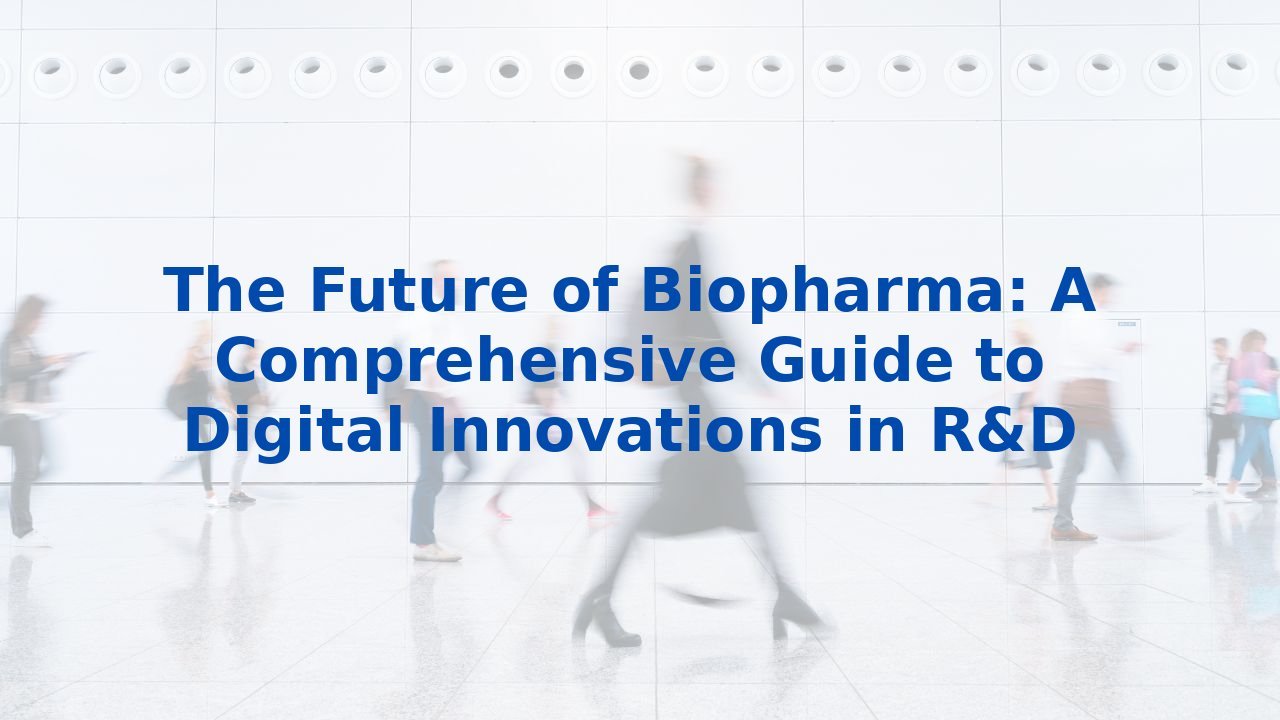The Future of Biopharma: A Comprehensive Guide to Digital Innovations in R&D

The Future of Biopharma: A Comprehensive Guide to Digital Innovations in R&D
As the biopharmaceutical sector continues to evolve, the incorporation of digital innovations is reshaping research and development (R&D) processes. From improving the accuracy of research data to expediting drug discovery, digital transformation is paving the way for a more efficient and responsive biopharma industry. In this guide, we’ll explore how these innovations are enhancing business processes within biopharma and the role of artificial intelligence (AI) in this transformation.
1. Revolutionizing Research Processes
Traditional research methodologies, though tried and tested, often suffer from inefficiencies. AI offers a pathway to overcome these challenges by providing analytical tools that can sift through vast datasets much faster than human researchers. By leveraging machine learning algorithms, we can identify patterns and correlations within research data that were previously undetectable. This capability enables biopharma organizations to accelerate their R&D timelines.
2. Enhancing Drug Discovery
Drug discovery is one of the most critical phases in biopharma. AI-driven platforms can simulate how new drugs will interact with the body, predicting efficacy and potential side effects with remarkable accuracy. This simulation reduces the need for extensive laboratory testing, translating to significant time and resource savings. When organizations harness these capabilities, they’re not just speeding up the process; they’re also lowering the costs associated with bringing new medications to market.
3. Improving Clinical Trials
Clinical trials are complex, involving numerous stakeholders and significant regulatory requirements. AI can optimize trial design by analyzing real-world and historical data to identify the most relevant patient populations. Furthermore, AI systems can monitor trial progression and flag any inconsistencies, ensuring compliance with protocols and enhancing participant safety. By embracing these innovations, biopharma companies can enhance trial outcomes and improve the overall quality of their evidence generation.
4. Streamlining Regulatory Compliance
Navigating the ever-evolving regulatory landscape is a challenge for biopharma organizations. AI tools can assist in automating compliance checks, flagging deviations from regulations, and providing insight into best practices. These tools reduce manual oversight, allowing teams to focus more on strategic initiatives rather than administrative burdens. With enhanced regulatory compliance, organizations can feel more confident in their submissions to regulatory bodies, facilitating quicker approvals.
5. Boosting Marketing and Commercialization Strategies
Once a drug is ready for market, effective marketing strategies are essential for success. AI can analyze consumer behavior and market trends, providing valuable insights into target demographics. Predictive analytics can offer a glimpse into how different segments may respond to marketing efforts, allowing for tailored campaigns that can significantly improve outreach efforts. This adaptability not only enhances market positioning but also contributes to long-term brand loyalty.
6. The Power of Bridging Technology with Human Expertise
While AI brings a multitude of benefits, it remains critical to understand that the human element is irreplaceable. Training your workforce to utilize AI tools effectively not only amplifies the benefits of these technologies but also fosters a culture of continuous learning and improvement. Educated employees are better equipped to harness AI’s analytical power, driving innovation and refining processes across departments.
The Transformative Benefits of AI in Biopharma
Integrating AI into biopharma processes leads to several overarching benefits:
- Efficiency: Automating routine tasks frees up valuable human resources for more strategic roles.
- Accuracy: AI tools minimize human error, ensuring high-quality insights and data integrity.
- Innovation: AI fosters creativity by enabling researchers to explore new ideas based on robust data analyses.
- Customer Satisfaction: Real-time support tools enhance engagement with healthcare professionals and patients alike.
- Data-Driven Decisions: AI equips organizations with actionable insights, facilitating informed decision-making.
Conclusion
The future of biopharma hinges on the successful integration of digital innovations, particularly AI. By enhancing key processes in research, drug discovery, clinical trials, and compliance, organizations can achieve unprecedented levels of efficiency and innovation. However, the transformative potential of AI is not fully realized without a dedicated approach to employee training and development. Empowering your workforce through targeted educational initiatives ensures that both the technology and its users evolve in tandem, ready to tackle the challenges of an increasingly complex biopharma landscape. The journey towards digital transformation starts today, and those who embrace it will lead the industry into a new era of healthcare breakthroughs.